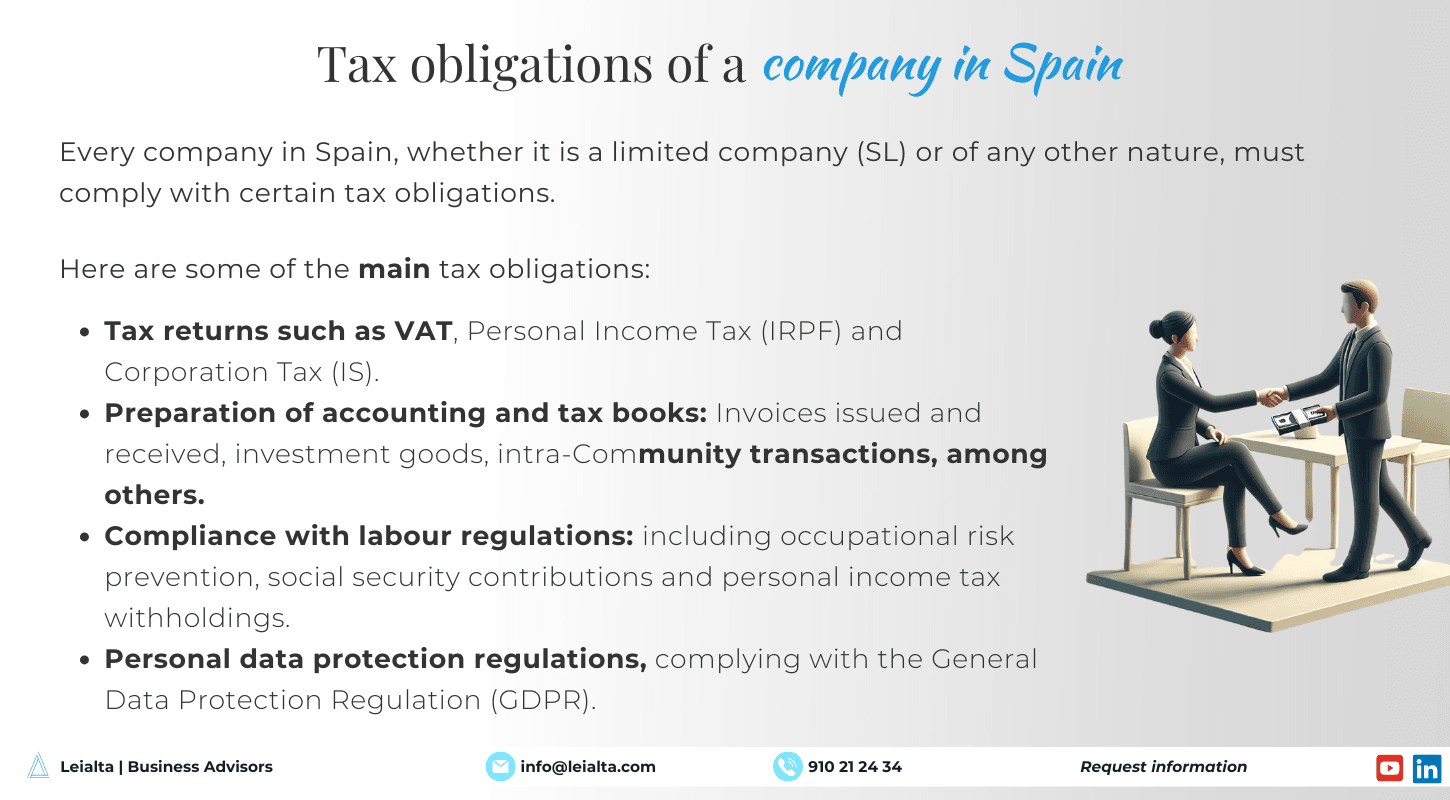![]()
What is a financial spin-off or reverse partial spin-off
To make it easier to understand what a financial spin-off is, we will explain it with an example:
- Several individuals own company A
- Company A owns company B
- With the financial spin-off or partial reverse spin-off, the shares of company B are transferred to the individuals.
- Conclusion: The individuals will own company A and B, which will be changed from “mother and daughter” to “sisters”.
From a legal point of view, a financial spin-off can be defined as one in which the subsidiary company transfer its shares to the partners (individuals) of the Mother company, as a consequence of this restructuring operation, the two companies would be separated but would belong to the same partners (individuals). In summary, the Holding company would be dissolved.
Tax aspects of the financial spin-off reverse partial spin-off
In order that the financial spin-off operation apply for the special tax neutrality regime, there must be valid economic reasons for this operation to take place. In this respect, according to the Corporate Income Tax Law, companies that carry out corporate restructuring operations can benefit from the tax neutrality regime if they meet the requirement of being based on valid economic reasons.
The special tax neutrality regime is based on the European regulations that aim to ensure that company restructuring operation does not be obstructed due to the tax implications of the Member States.
However, in practice there are several controversies regarding the application of the special tax neutrality regime to the reverse partial spin-off. In this respect, it is worth highlighting the case of a Commercial Registrar who refused to register a reverse partial spin-off operation on the basis of the following arguments:
- Inalterability of the company which receive the assets (beneficiary) derived from the financial spin-off.
- Non-compliance with the law as long as the set of shares that are transferred do not constitute an “independent economic unit”.
- Absence of cause (valid economic reasons) to carry out the financial spin-off.
However, the mentioned rejection was appealed and the Resolution of November 8, 2019 of the Spanish General Direction of Registrars and Notaries (known in Spanish as “DGRN”) was issued, this Resolution state the financial spin-off operation had been carried out legally and in compliance with the requirements established based on the following reasons:
- Costs and expenses of the business group are reduced and the financial spin-off is the operation that facilitated this aim the most. The restructuring operation could have been carried out in a more complex manner with a partial spin-off, segregating shares in favour of a newly created company and then carrying out a merge, but simplicity has been chosen.
- Partners and third parties are protected. Both the rights of the shareholders and of the employees are protected since all the necessary information is made available to them and the legal deadline for opposition by creditors is complied with.
- A legally permitted acquisition is made. With the partial division, the transfer of the assets by universal succession takes place and therefore the derivative acquisition of the shares is permitted from a comercial law point of view.
- An “independent economic unit” exists. The shares transferred with the partial division form a business entity is considered an “independent economic unit”.
- There is a real reason for the reestructuring operation. In this case, the separation of the real estate business and the company’s main business, which is considered to be a valid reason for carrying out the restructuring.
In summary, in Leialta know that this resolution validates the reverse partial spin-off as a business restructuring operation permitted by commercial law, provided that the procedural requirements are met and the interests of shareholders, employees and third parties are safeguarded.




What is the deadline for reflecting on the demerger resolution in the company’s official minutes book? Best Regards
Dear Harry,
Once the resolutions have been drafted and transcribed, the minutes must be approved by the general meeting at the end of the session, with the signatures of the members or shareholders in attendance) or, within fifteen days, by the chairman of the forum and two intervening members, one representing the majority and the other the minority.
After the minutes have been approved, they shall be signed by the person who acted as secretary, with the approval of the presiding officer. At this point, the minutes must be transcribed into the company’s Official Minutes Book. Best Regards